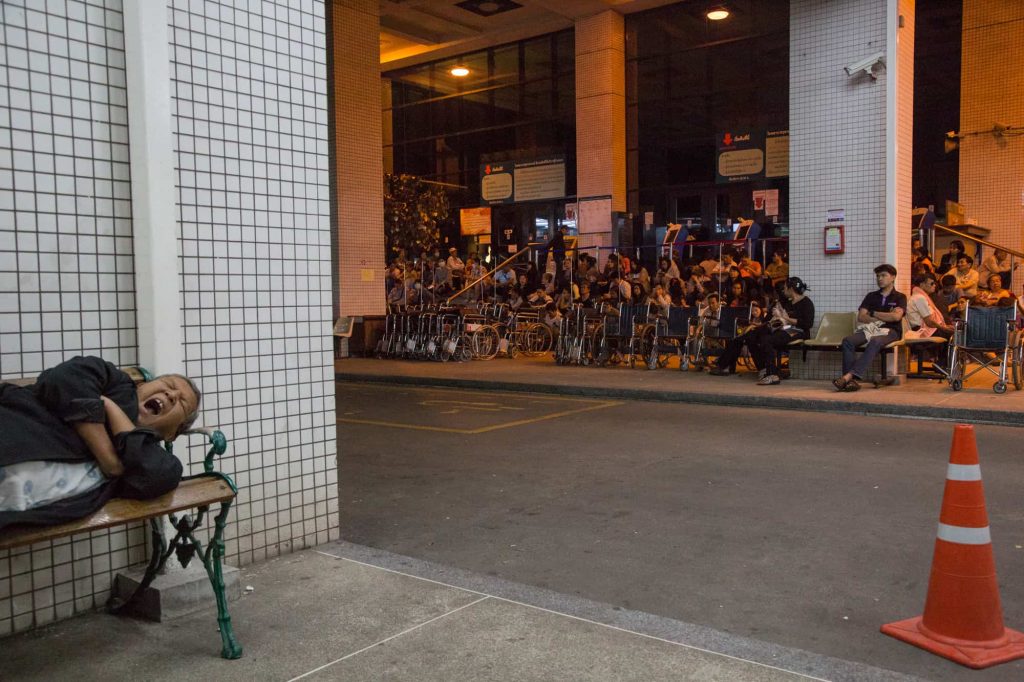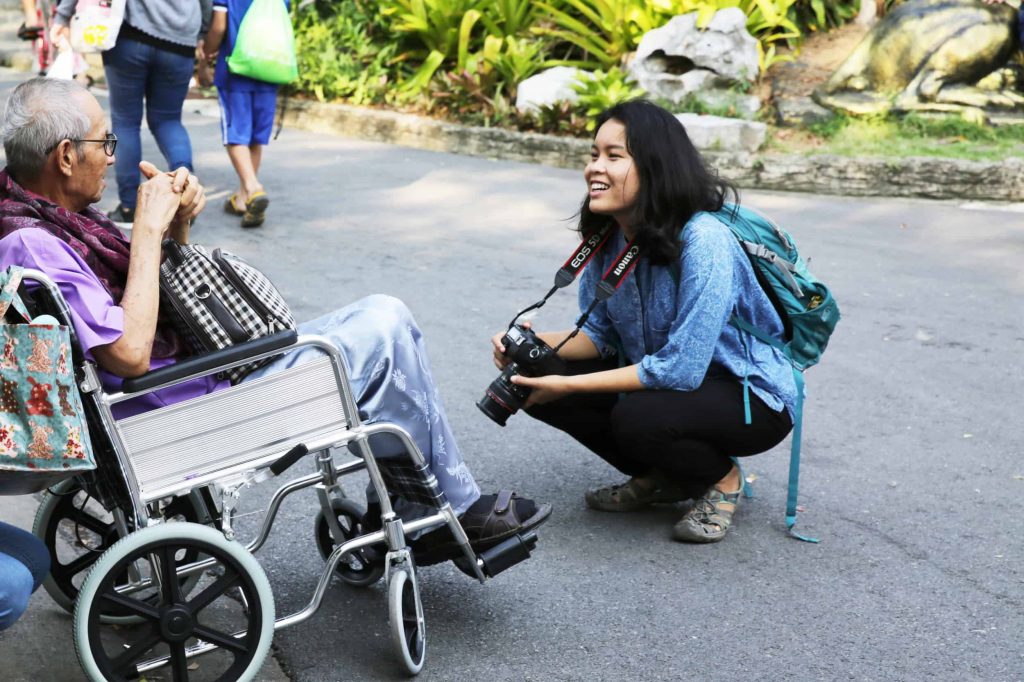If we question things only on the individual level, we will solve only short-term problems and might have to solve the same problem again and again. If we question the system, we might be working hard on the most difficult projects, but it is still worth it to find and solve the root of the problems.
“I am a storyteller.”
I introduced myself in the “Shoot it Rights” photography workshop, held earlier this year at Kachart Cafe in Bangkok. The workshop was a collaboration between Amnesty International Thailand, RealFrame Group and the Faculty of Information and Communication Technology, Silpakorn University.
“Shoot it Rights” was not a technical photography workshop, and this impressed me. No one minded what kind of equipment is in others’ hands, but they cared a lot about what the photographer aims to communicate through photos.
Still in my mind, a long time ago someone mentioned to me, “The best camera is the camera that is in our hand while we are facing the right moment. And make sure that you do not forget to press the shutter.”
To see Chalefun’s photo essay from the Real Frame workshop, “If you were me,” click here.

An image from Chalefun’s photo essay, “If you were me,” for the “Shoot it Rights” workshop.
Beautiful vs. Good
Most of the topics that we discussed were not about how we get the most beautiful shot. No matter how beautiful a shot is, if it cannot tell any story, we fail to communicate our message to the audiences. The audiences have full rights in their hands to reject our work.
Good photos need deep research before we go out to shoot. Deep research will shape our perspective with multiple points of views. The more we know the topic that we are working on, the more we get a chance to get aa sharper idea in our photos.
Truth Management: Storytelling
I had exchanges and discussions with the guest speakers and other participants about how to raise awareness about human rights issues by using the art of photography. The guest speakers encouraged everyone to give an opinion and reflect from their background.
I noted to myself that raising the concern about human rights violation issues by photography is so challenging and fascinating at the same time. For sure, there is no law in art. Even when there are rules, sometimes the artists suggest that we pretend to forget. There is not even right or wrong; with art it is up to the audience.

Chalefun connecting with the subject of a portrait for her photo essay “If you were me,” for the “Shoot it Rights” workshop (photo by Somsak Natthong, RealFrame Group).
Luck, Talent, Practice
The most challenging part in “Shoot it Rights” photography workshop was that each participant had to create a practical personal photo essay related to a rights issue in a limited time. At the end of the workshop, slideshows of the photo essays were screened for real audiences who were invited to a final party.
The following list is of things that I learned from shooting my personal project in this workshop:
- After selecting the topic, make the appropriate shot list. In this stage, group brainstorming helped me a lot to concentrate while developing the concept.
- What kind of shots do I need? I drew the pictures in my head before going to do the shooting.
- Time management is so important. If I got the shot that matched my expectation, I learned to move on to grab the shot that I hadn’t gotten yet. Done is better than perfect!
- To respect the subjects’ rights is important. Asking for their permission before shooting made me get closer to the subject in many shots, and get to know their story.
- I always tell myself to not give up – sometimes being stubborn is important.
I am not worried about luck and talent much because they are uncontrollable; the only practical thing in the photography process is practice.
It might be true that there can be several versions of a fact (depending on whose story it is), but there can only be one truth.
In my life, if I have to choose only one truth to believe in, without any doubt, I choose the freedom of expression. Participating in the “Shoot it Rights” workshop has helped me to get inspired to improve my storytelling skills and also to emphasize the importance of the work that I already am doing.
Cover photo by Visarut Sankham, RealFrame Group.





